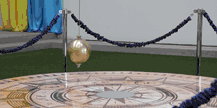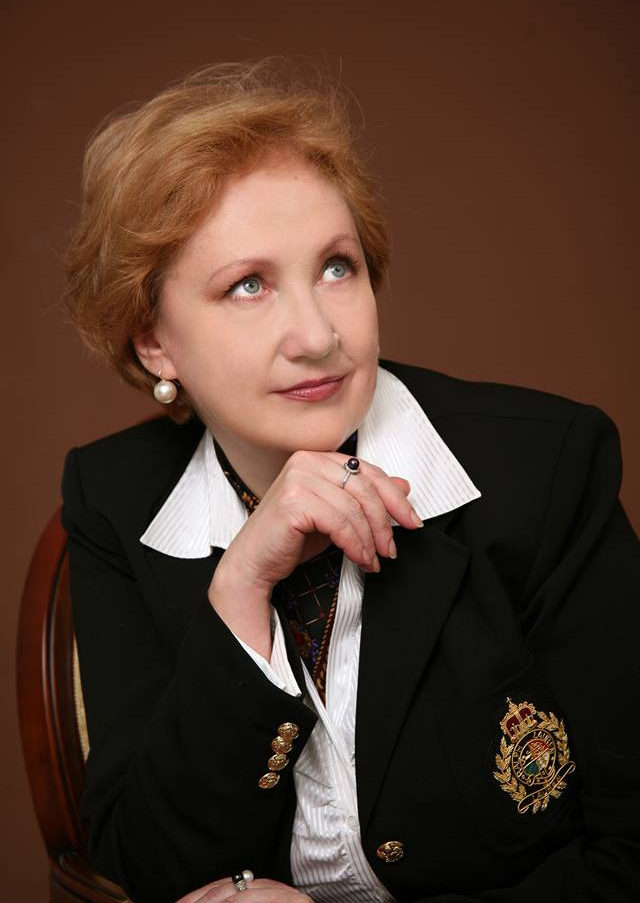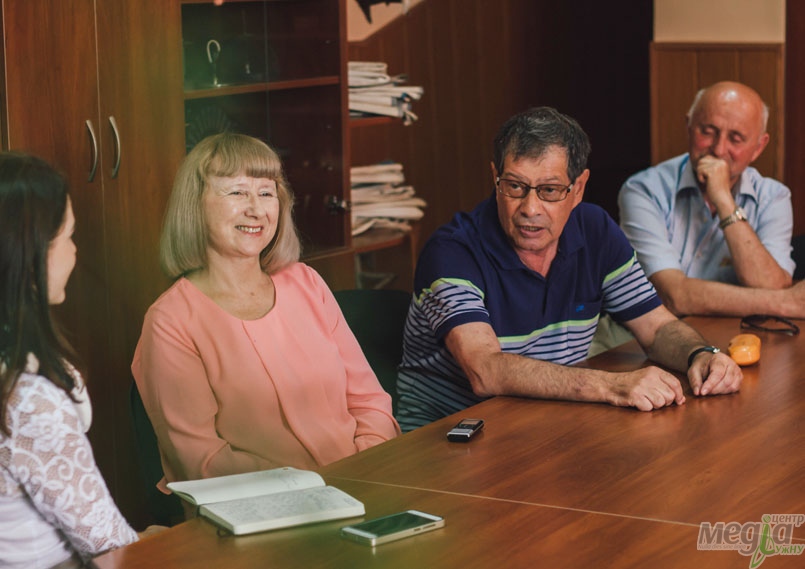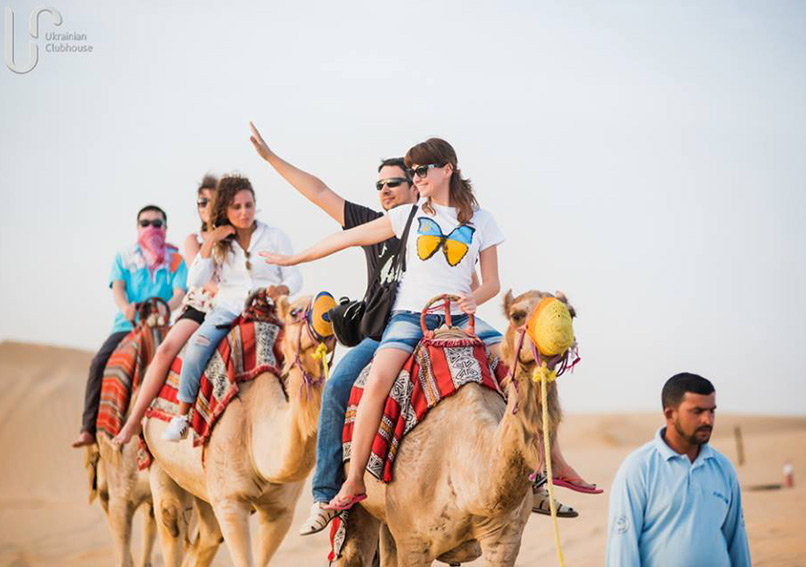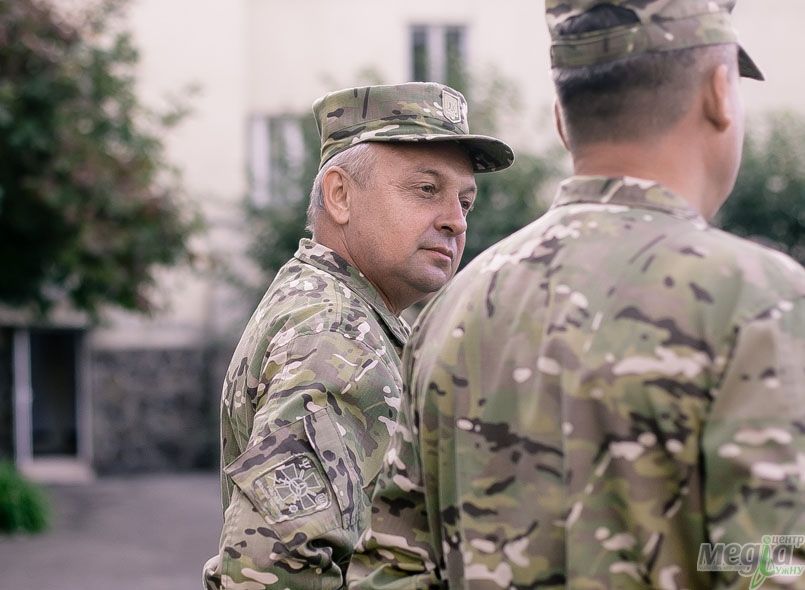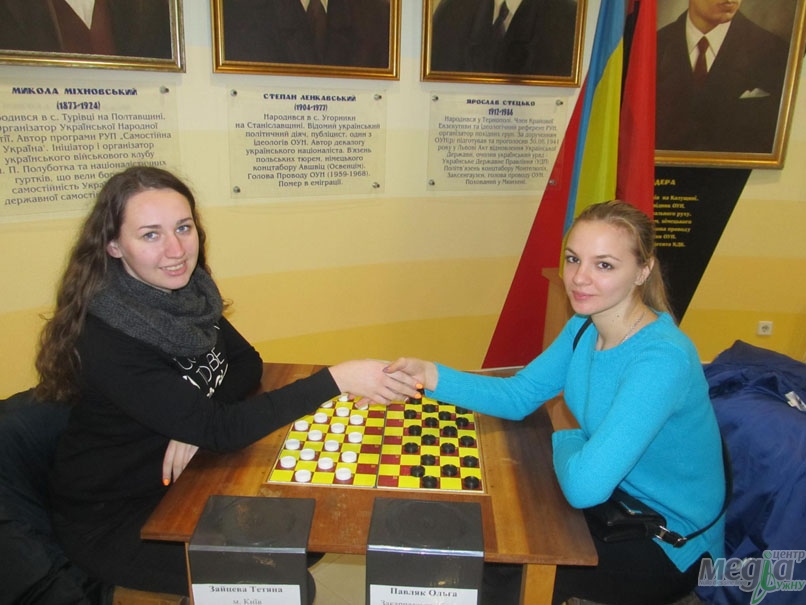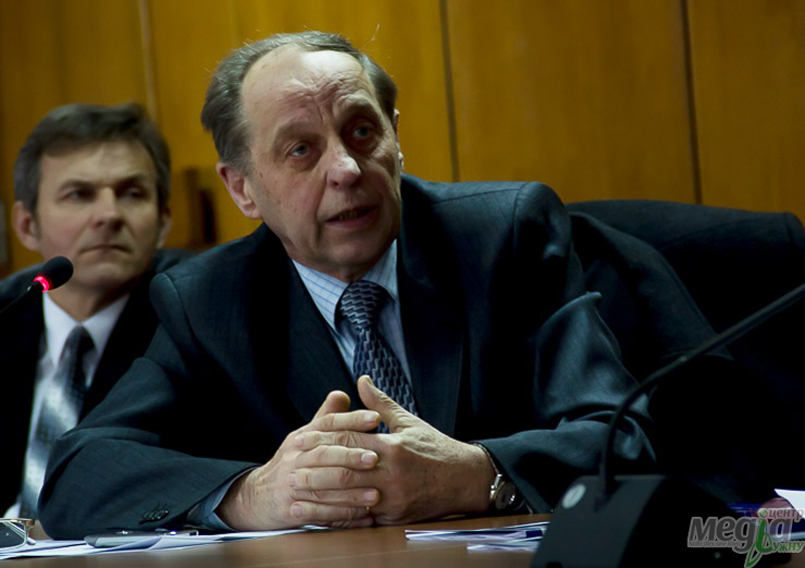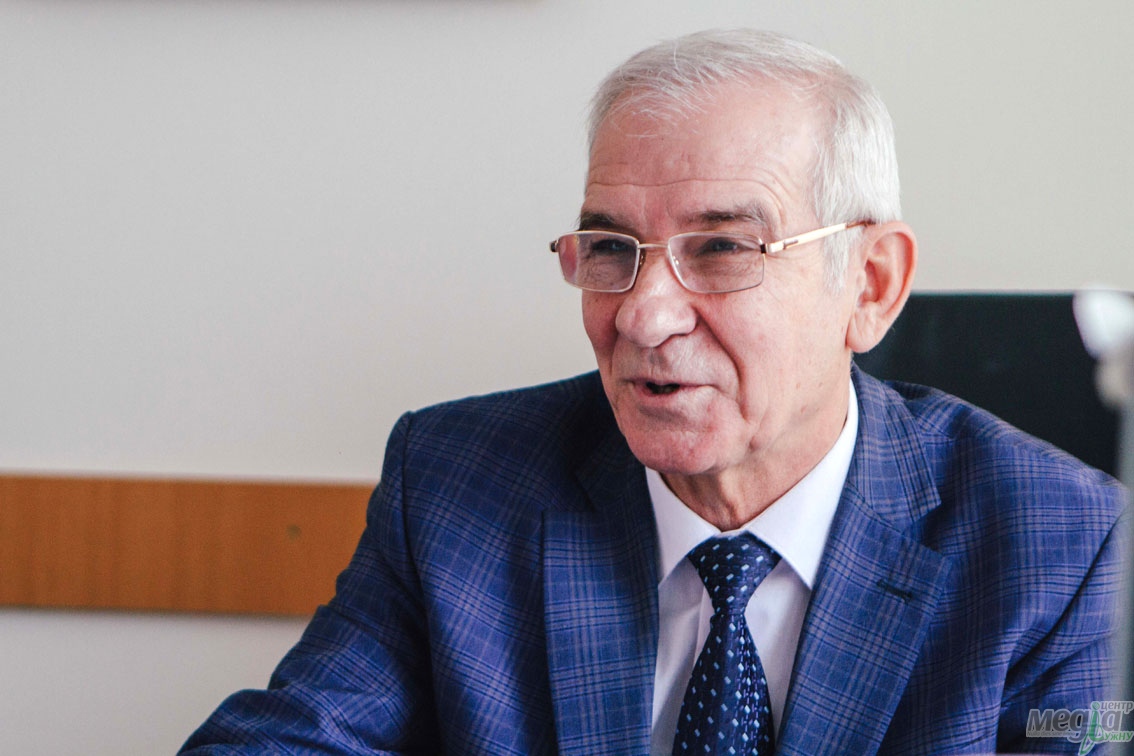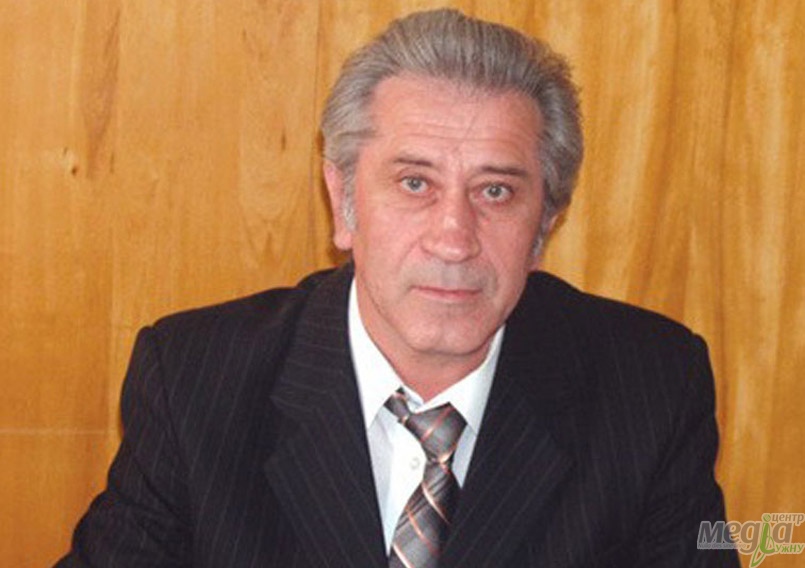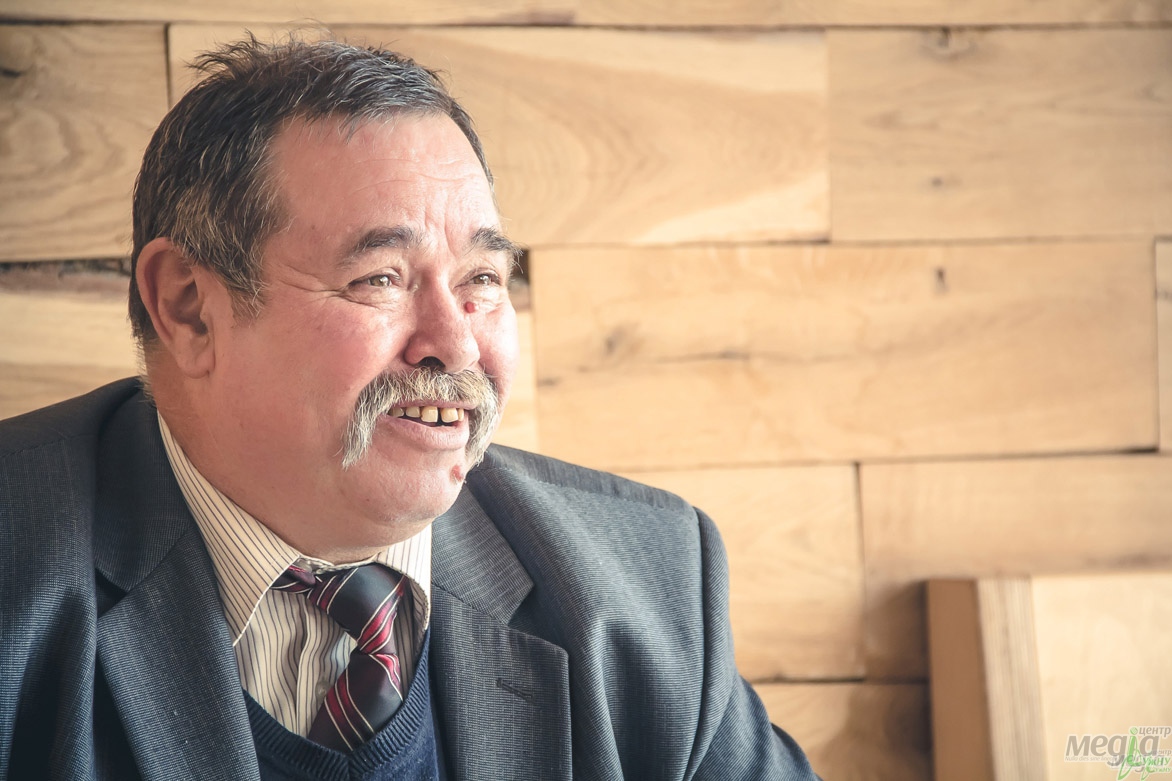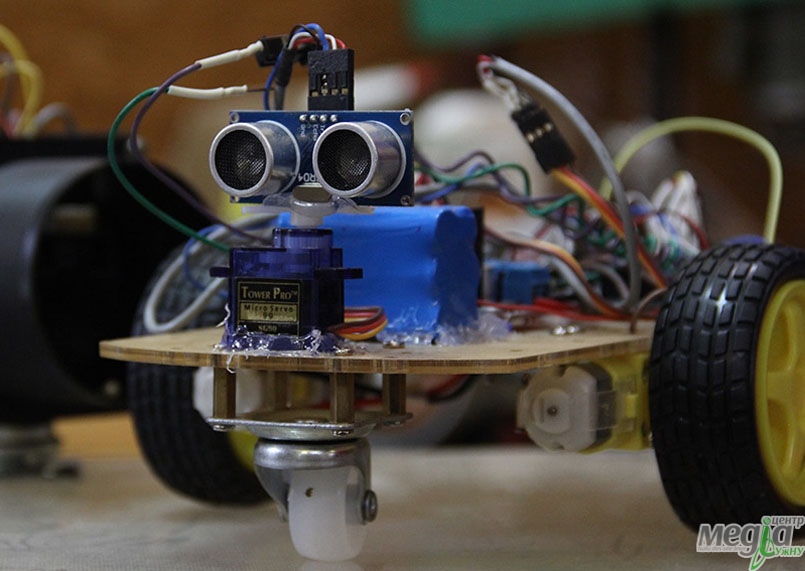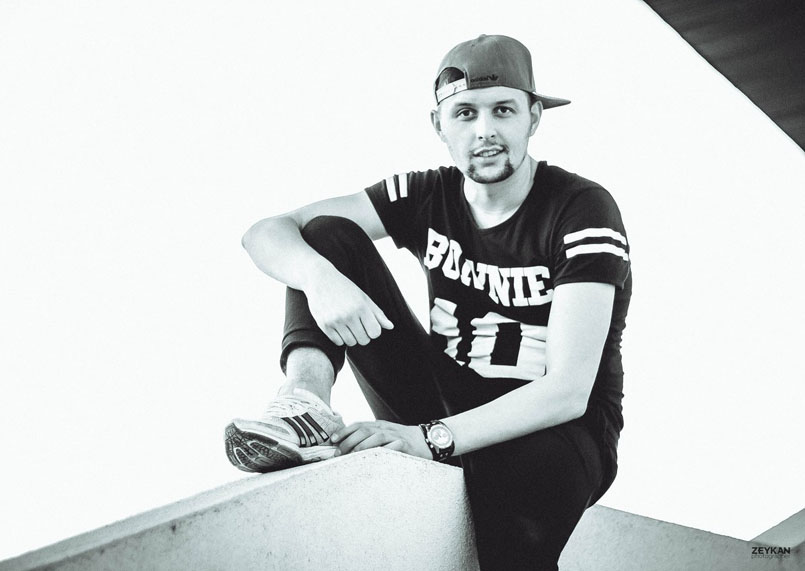| Головна » Усі публікації » МЦ-інтерв’ю |
Russian hand grenades on Donetsk restaurant tables for discussing the billTalking for many members of Eastern Ukrainian Intelligentsya Professor Natalya Todorova talks about her experiences made during the outbreak of the so-called 'separatist' movement in Donetsk under Russian organization and participation in springtime 2014, in an interview by activist Johannes Colpa (Netherlands). Furthermore she comments on the situation of Ukrainian society today and the outlook into the future of her country facing the association agreement with the European Union.The 56-years-old philologist did her doctorate in 1987 and worked all years until her flight 2014 at National Donetsk Technical University, lately in managing position of a main department. She and her family had to leave behind everything, but together with her husband, a Professor for history, the scientist suceeded to start a new life in Western Ukraine, unlike many unlucky refugees. Still in Donetsk she began to make herself heard opposite Western news agencies, when the events around her still were taking place, and met with Dutch activist Johannes Colpa in Christmas season 2015 to share a view back and express her hope for a better future.
- Before the war started I had worked at the largest and oldest university of Donbas, Donetsk National Technical University, for more than 30 years. I headed the department of international educational and business communication, which employed the faculty of 26 professionals, majoring in foreign languages, pedagogy, economics and business. The department had a solid reputation for the high level of teaching and international cooperation with the universities in the Netherlands, Germany, France, Spain and Finland. I had also participated in many projects run by the Ukrainian Ministry of education, The British Council and the American Council in Ukraine, I dealt with the National independent testing, organization and standards of business education, e-learning for the teaching staff. My husband worked as a professor of history at the classical Donetsk National University. My elder daughter, who graduated from the Ukrainian university with the degree of a master on international economics and from German university majoring in economic cybernetics, lives and works abroad. Our younger daughter chose music as her calling and she studied piano playing in the local musical college, ranking the best among her classmates. She was a musical competition winner and planned to continue her studies at the conservatorium. We lived at the very centre of Donetsk, had a nice flat, a car and a summer house in the town of Sevastopol in Crimea. I travelled a lot around the world, and we as a family considered ourselves to be quite successful.
- Never-ever. On the contrary, we were proud that Donetsk area, that is famous for being multinational, was very tolerant to different nations, to various languages. We had Greek and Jewish communities, which were explicitly active in developing their language and culture. Objectively, the majority of people there spoke Russian, but at schools and universities the Ukrainian language became the language of instruction and students got used to it easily. When the national government introduced the measures to strengthen the presence of the Ukrainian language in the region, the people who were dissatisfied belonged mainly to old generation who didn’t want any change. It is the natural resistance to change that is inherent in older people and we didn’t see any problem here. My students were bilingual and easily switched between Russian and Ukrainian. However, there was created and supported the special image of the Donbas as the region of strong and hard-working people, with a highly-developed industry, which ‘feeds’ the whole Ukraine. This image was long supported by the authorities and the mass media to strengthen the local identity, feeling and the regional pride. Yet this didn’t mean the locals had any aspirations to become independent, or become a part of Russia. Besides, the results of the National referendum of 1991 for Ukraine’s independence show that 83.9% residents of Donetsk region and 83.8% of Luhansk region supported Ukraine as an independent country.
- I was extremely disappointed by the developments in this country after the ‘orange’ revolution of 2004. I saw how our corrupt leaders manipulate the common people’s aspirations to live better and how authorities abuse them. So I decided for myself that I am not going to play these games any longer and I won’t give anyone the chance to manipulate me. I wasn’t able to fight my indignation, as I saw the youth being beaten up in the streets by the police as the peacefully demonstrated their wish to associate their future with Europe. When Putin accused Ukraine of fascism and planned to interfere with his arms, I still trusted on the rationally thinking people within the Russian government. But when the Russian parliament unanimously gave the green light for Putin’s military invasion of Ukraine, I couldn’t remain in the back-seat any more. There were the local ‘euro-maidan’ and several demonstrations where we went to express our indignation against separatism and Russia’s aggression. We were self-organised via the social networks. I was proud that my students were among the most active organisers of such pro-Ukrainian anti-separatist rallies. However, we had to confront the gangs of armed people who were brought to Donetsk from outside and beat the rally participants indiscriminately: a girl, a teenager, a pensioner. Some of the girls from the rally once tried to run into a church trying to hide themselves from these bandits chasing them with baseball bats, but the servants in the Moscow patriarchate church didn’t let them in, claiming that they were ‘Banderovtsy’ [Annotation:’Banderovtsy’ or ‘Bandera-men’ means a denigrating term from Russian point of view for nationalist Ukrainians, linking them with OUN politician Stepan Bandera (1909 - 1959), murdered by Soviet agents] because they support Ukraine. A young activist was stabbed to death at the end of one meeting. The pro-Ukrainian activists did not have any arms and protested peacefully. The local police did not interfere when they were beaten. The policemen just stood and observed. When I appealed to them to stop the bandits, they responded that they didn’t have an ‘order’. It’s not surprising that the majority of common people were simply frightened and preferred to stay at home and wait till the authorities or the oligarch Akhmetov’s personal troops [Annotation: Rinat Ahmetov (*1966) is a billionaire from Donezk who used his employees as militia, is considered a mafia don in Donbas region and supported Janukovitch party of the regions, but also donated money for relief of refugees] stop that mess, which did not happen. As a result, the streets of city of Donetsk, with it’s million citizens, became deserted every day around 6 p.m. After those dangerous rallies, when the organizers admitted that the safety of the participantscannot be ensured any longer, my husband and I concentrated our efforts on providing hands-on information to the world about the events in Ukraine. The period of February – June 2014 was full of our interviews given to the world news agencies.
- For me the war means being surrounded by armed people. To see men in military uniform running with a Kalashnikov among the city-dwellers who walk peacefully with their toddlers, sitting in cafes, and continue their life as if nothing happens is a surrealistic picture which I witnessed in May 2014 in the centre of Donetsk. When Chechen military people, behaving like they own the country, came to a posh restaurant of Donetsk and put a hand grenade under a cap on the table and showed that grenade to a waiter making an order and discussing a bill, isn’t it a war? The drunk shabby-looking people with a gun, speaking with a strong Russian accent, came to us to find out who we were for: for Ukraine or for Donetsk People’s Republic (so-called DNR), was a strong indication of the coming war.
- First we didn’t take this power seriously. We thought they were just clowns and were surprised why the authorities allowed them to behave like this. Then we learnt about activists who disappeared and were found killed later and about the ‘basement’ where they brought people who were either pro-Ukrainian, or were a citizen who was arrested on the false denunciation by some ‘watchfulwell-wisher’. This in order to torture, blackmail, or kill the prisoners, and grab their property. The city-dwellers became very cautious in expressing their thoughts and opinions: who knows who may report on you. The new ‘authorities’ started to dictate where to go, how to dress, etc. and encourage the population to squeal on the ‘enemies’ of the young republic. Of course, they had the Russian flags, the flags of the DNR and the Communist party installed everywhere. There appeared the billboards advertising Stalin, Putin and the USSR.
- Among my friends and colleagues nobody supported separatists, because among the latter there were no ‘leaders’ an educated person could respect or just pay attention to. Yet we normally mix with people similar to ourselves. But the local sociologists of the Donetsk National University in their research in March 2014 proved that only 30% of local inhabitants supported the idea of either joining Russia or the DNR as an independent formation.
- In fact when we left Donetsk in July 2014 we didn’t think we were leaving for such a long time. The last drop that formed our decision to leave was seeing the armed military next to our home. We were lucky to send our younger daughter to visit her sister in abroad. On July 3, my colleagues and I took the entrance exam on the master program. We had to change the premises this exam was to be held in originally, as the university building was blown up the day before.We finished our job obligations and left for the Crimea to stay in our summer house in Sevastopol till the beginning of the new academic year. Hoping that all that mess in our home city would be settled down soon, we left all our documents and possession back at home. In the middle of August it dawned on us that our return was hardly possible as they started shelling the city intensively. The building of my university was ruined and some of my colleagues were killed at the workplace. Besides, a student of my husband who was arrested by the separatist police and was tortured to inform about his teachers at the university, said that he saw the name of my husband in the list of people to be arrested by the separatists. Thus we understood that there is no way back for us so far.
- All in all, I cannot say that the life in Ukraine has changed in the positive way. What is good is that the majority of our people started to identify themselves as Ukrainians, feeling patriotic, developing compassion for other people in need. The strong volunteers’ movements proved to be much more effective than the government and military officials whose job it is to provide for the army and for the refugees [from ATO-Zone]. These are those positive changes that were brought (on) by the war and that are the forerunners of the new civic society in Ukraine. The soldiers who defend the country and the volunteers who back them up, form the conscience of the society which the current corrupt officials should beware of. My life now is peaceful from the outside. I have a decent job, unlike many of my colleagues. I have lost my professional status and many of the connections. I have a lot to offer to my new university but do not feel that it is required. Maybe, they spare me after all the stress I came through, or I should show more initiative myself. Yet I am safe, surrounded by very good and attentive people, for which I am grateful. My daughters are both safe. I found myself living in the Trans-Carpathian region which is the land of plenty: rich history, original culture, and generous people. But my heart is bleeding when I hear the number of people killed in the East of Ukraine and about the ruined lives of my friends and colleagues. I see my home in Donetsk every night in my dreams and I have no opportunity to visit my home city, until the region is free from occupation.
- The future is very vague, to my mind. The majority of the local elite left the region in the pursuit of jobs and safety for their families. It is not a secret that the current situation is beneficial for those who are at power from both sides as it is a source of billion profits. We do not see any political will to clarify the standpoint on the part of the Ukrainian government: they haven’t had the heart to call the so-called ATO (anti-terroristic operation) by its real name – a war. They turned blind and deaf when the Crimean tartar activists demanded a clear standpoint concerning the occupation of the Crimea, to mention but two examples. I guess the future of this region will be similar to that of Abkhazia orTransnistria, which is a pity. I don’t even want to discuss the possibility for Ukraine to forget this territory, as some people say: if they want to be independent, let them go and forget about it. The fact is that in Donbas there have always been many people for whom the Ukrainian language is native and it is not fair to leave them high and dry.
- I strongly believe that an Association agreement is a strong message for Ukraine on the part of the EU. You remember that the Ukrainian revolution of dignity started with the peaceful pro-European rally of students, who showed themselves the passionate advocates of their European future. Many Ukrainians expected the meaningful support from the EU and US in their fight with Russian aggression, yet the EU leaders restricted themselves with voicing their ‘deep concern’. As a result, the Ukrainian public opinion started coming to the conclusion that the EU doesn’t care and doesn’t want to see trouble-making Ukraine as a partner, let alone as a EU member. In this context the Association Agreement is the chance for Ukraine to experience the specificity of the European politics, economy and civil society, in order to make the European values operational for the Ukrainian context.As soon as the common people experience these practical benefits, it would be easier for them to adopt the European values and demand the relevant level of activity and legal support from the government authorities in Ukraine.
- This allegation, to my mind, is a typical product of the Russian propaganda, which is not based on the scientific understanding of the term ‘fascism’, but on the Soviet stereotype that rings the bell to the old generation. ’Fascist’ for them is associated with the World War II, mass murders, oppression, occupation, and everything negative, to put it short. When I analyzed this allegation with my 19-20 year-old students, who do not have this stereotype, they easily found logic-based counter-arguments, such as: 1. Fascism = radical nationalism. But among those who fight against separatism and Russian occupation in Donbas and Crimea there are Ukrainian citizens of various ethnic origin: Russians, Tatars, Jews, Gypsies, Georgians, and other ethnic minorities of our country who proudly call themselves ‘Banderovtsy’ – a word that was historically used to denote radical Ukrainian. Many of the Ukrainian patriots have been speaking Russian as their mother tongue, and keep on speaking it now, yet they want their country Ukraine to be free from Russian invasion and to remain independent. 2. Fascism = suppression of democracy. But the revolution of 2013-2014 started due to the wish of the common people who cherish the democratic values in our country, such as the ability to have a say as to how the country should develop, to fight corruption in the government, to ensure a democratic just future for their children, etc. 3. Fascism = militant foreign policy. But never in its history Ukraine tried to take this standpoint. Moreover, since the beginning of 2014 we lost the Crimea due to the government’s attempt to avoid conflict and their naïve expectation that the country is protected by the international treaties, not by its armed forces. As is typical of Russian propagandistic media, blaming Ukrainians for fascism, they do not bother to prove these allegations with any proven facts. Travelling around Ukraine I have never been discriminated for the fact that I speak Russian. Yet I eye-witnessed the case in spring 2014 when one of my students in Donetsk was severely beaten in the main Lenin square by the ‘new power’ representatives for speaking Ukrainian on the phone with his mother. The mother lived in a small mining town of Donetsk region and for her Ukrainian was a mother tongue. The Russian propaganda calls the citizens of Ukraine nationalists for their wish to live on the territory of their own independent nation-state and to speak the language of their parents, be it Ukrainian, Russian, Hebrew, Tatar, or any other of the national minorities living in this country. This has been the Russian attitude towards Ukraine throughout history.
- I am not keen on economic or geopolitical issues to forecast the results of no association treaty for Ukraine.
- What I can forecast is a huge humanitarian influence. During the revolution of 2013-2014 the young educated generation of Ukraine considered themselves to be more European than the majority of the EU citizens. These were the young people who were able, ready and willing to re-build this country on the model of the EU states, which for them is state-of-the-art in governance and public administration. They did not dream to emigrate; they wanted a change at home. It is they who are the future of this country, not the pensioners who dream about the Soviet Union and Russia. Well-organized monitoring of the EU is already felt in the current changes in this country: the government officials are not so brave to steal and to take bribes, knowing they are being closely monitored by our foreign partners. Some people may still have illusions that association with the EU will solve all our problems. But again, this is typical of the older fatalistic generation who are used to oligarchy style of government, and they do not believe they can change anything in this country. Thus, the association treaty for Ukraine is empowerment of those who want to build a better life for this country, a benchmark for development.
- I know that people in the netherlands value straightforwardness and frankness. Our people are also straightforward and sincere, friendly and generous. They value their families, friends, home, peace, mutual respect and independence. However, historically our nations were often suppressed by more powerful neighbor countries, and after shedding their blood to protect their homes they finally had to give up. As a result, they also learnt to work hard and to be patient. Nevertheless, the Ukrainian people managed to perserve their national culture and values. Almost 25 years ago Ukraine become independent without any violence. The population then did not value this gift. Only now we are mentally forming as an independent responsible nation. Helping our army to defend our territory, saving thousands of refugees, controlling the current government, common people understand that they can change life in this country. The real civic society started to form in this country despite the corruption, bandits, and traitors who are still strong. So I won't beg you to vote for Ukraine. You decide whether you should give your helping hand to a nation that wants to fight that negative legacy of communism and oligarch governance in the civilized legal way, wants to cherish its traditional values that are so similar to yours, and dreams to ensure better future to its children here, in Ukaine, not abroad. _x_PS1 В інтерв’ю нідерландському активісту, говорячи від імені численної східноукраїнської інтелігенції, професор факультету міжнародної політики, менеджменту та бізнесу УжНУ Наталія Тодорова розповідає про власний досвід, здобутий під час спалаху так званого «сепаратистського» руху в Донецьку під керівництвом російських організацій та їх участі у весняних подіях 2014 року. Крім того, коментує ситуацію в українському суспільстві нині, озвучує своє бачення перспектив країни в майбутньому у зв’язку з угодою про асоціацію з Європейським Союзом. Пропонуємо ознайомитися з усім інтерв’ю – англійською мовою._x_PS2 _x_PS3 _x_PS4 /live/2016/01/32todorov/Todorova_Natalia_a.jpg_x_PS5 _x_PS6 _x_PS7 45%_x_PS8 _x_PS9 _x_PS10 Interviewer: Johannes Colpa._x_PS11 Introducing commentary by Volker Trauth. January 2016_x_PS12 _x_PS13 _x_PS14 _x_PS15 _x_PS16 _x_PS17 _x_PS18 _x_PS19Introducing commentary by Volker Trauth. January 2016 |
|
 МЦ-інтерв’ю | МЦ-інтерв’ю |
 01.02.16 | 01.02.16 |
 Lucky | Lucky |
 934 | 934 |
 0.0/0 0.0/0
|
|
|
|
Помітили помилку? Виділіть її й натисніть Ctrl+Enter! |
 0 0 | |
Ми у Facebook
Рубрики розділу
Інші матеріали рубрики

